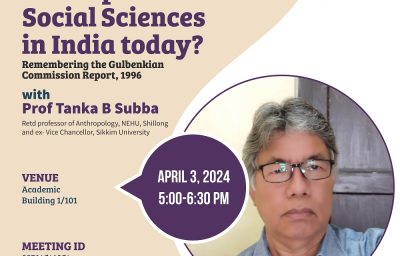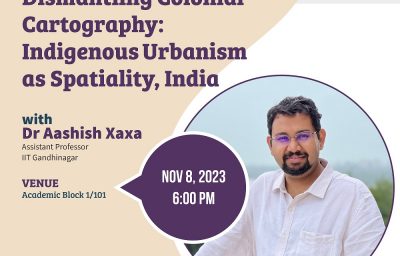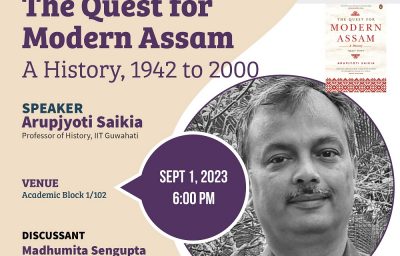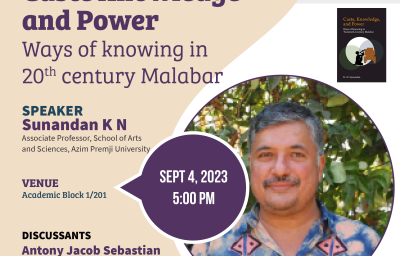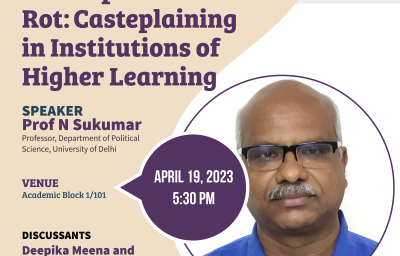Speaker Bio:
Rosinka Chaudhuri is Professor of Cultural Studies and Director of the Centre for Studies in Social Sciences, Calcutta (CSSSC). She earned a D.Phil at the University of Oxford and was the inaugural Mellon Professor of the Global South at Oxford, 2017-18. Prof. Chaudhuri’s publications include “Gentlemen Poets in Colonial Bengal: Emergent Nationalism and the Orientalist Project” (2002), “Freedom and Beef-Steaks: Colonial Calcutta Culture” (2012) and “The Literary Thing: History, Poetry and the Making of a Modern Literary Culture” (2013), and ” A History of Indian Poetry in English” (2016). Her edited publications include: “Derozio, Poet of India: A Definitive Edition” (2008), and, with Elleke Boehmer, “The Indian Postcolonial” (2010), and “An Acre of Green Grass: English Writings of Buddhadeva Bose” (2008). She translated the complete text of the letters Rabindranath Tagore wrote his niece Indira Debi as a young man, entitled,” Letters from a Young Poet (1887-94)” (2014), which received an Honorable Mention in the category A.K. Ramanujan Prize for Translation at the Association for Asian Studies Book Prizes in 2016.
Abstract:
Indian men and women travelled in unprecedented numbers overseas following the great Indian Uprising of 1857. This paper argues that there was an intimate connection between these two events: demonstrated by an analysis of 4,600 migrants from the port of Calcutta between 1857 and 1869. However, ‘push’ factors from north India and ‘pull’ factors arising from the demands of employers were only part of this story. Indians used informal networks and affective relationships to counter the exploitative arrangements set in place by colonial governments. Crucial to their migrations were intermediaries of various sorts. Known as ‘traffickers’ in contemporary political discourse, or as ’sirdars’, ‘duffadars’ and ‘kanganies’ in colonial times, they assisted migrants in their journeys to Assam, and to specific destinations around the Indian Ocean and in the Caribbean. These intermediaries were usually themselves ‘old migrants’ who could inform refugees and migrants how best to avoid the hazards of their long journey. They also acted as overseers on overseas plantations. As middle-men between the employers and workers, they were commonly criticised and their importance overlooked. However they performed a vital service, especially when it came to representing the worker’s interests if they chose to re-indenture and settle in far-flung destinations such as Mauritius, South Africa, Malaysia, Trinidad and Guyana. Hundreds of thousands of Bhojpuris and their families chose to do just that, the wives of male migrants contributing equally to the prosperity of their new homes, setting up small businesses, and even sometimes acting as labour overseers themselves. As result of these efforts it may be said that, Indians contributed at least as much as Europeans to the building of new societies across the global south in the 19th and early 20th centuries.
Venue:
Day: April 28, Wednesday
Time: 5:30 – 7:00 pm
Meeting ID: 996 4968 6132
Passcode: 635588
https://iitgn-ac-in.zoom.us/j/99649686132?pwd=WGpyYnVFRE5NV0VHeFoyUFdPMGRXUT09


